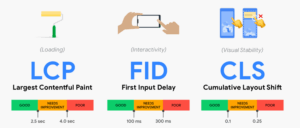In the dynamic world of digital marketing, staying up-to-date with the latest policy changes is crucial for advertisers to remain compliant and effective. Google Ads operates as one of the most significant advertising platforms, and its policies can significantly impact the strategy and execution of marketing campaigns, especially in niche sectors like online gambling and gaming. The sector has seen recent changes in Google Ads’ advertising policies, which could alter the advertising landscape for this industry. In this article, we explore the latest Google Ads policy updates, their implications for advertisers in the online gambling and gaming industry, and strategies to adapt to these changes.
Google’s Ad Policy Evolution: Embracing the Online Gambling and Gaming Sector
Google has historically been cautious with its approach to gambling-related advertising, maintaining stringent regulations to ensure a safe and fair online environment. However, as the legalization and regulation of online gambling evolve worldwide, Google too has been updating its policies to reflect these changes, allowing more opportunities for advertisers in the gambling and gaming sector, but also placing new boundaries and guidelines for them to follow.
Changes in Geographic Availability and Licensing Requirements
One of the key policy changes revolves around the geographic availability and licensing requirements for gambling and gaming advertisers. Google’s latest updates have expanded the list of countries where these types of ads can be displayed, provided the advertiser holds a valid license from the respective regulatory authority in the country or state. This evolution opens new markets for operators but requires them to navigate different jurisdictions’ licensing procedures.
Verification Processes: Ensuring Advertiser Credibility
To ensure the credibility and legitimacy of advertisers, Google has implemented a detailed verification process that all gambling and gaming companies must undergo before their ads are displayed. This includes providing Google with information related to their gambling license, as well as documents that prove their legal status and identity. Advertisers may also have to pass a verification process specific to the product type they intend to promote, which could include casino games, sports betting, lotteries, and daily fantasy sports.
Stricter Content and Targeting Restrictions
The content and targeting of ads have also seen more stringent restrictions. Gambling and gaming ads must not be targeted at underage individuals or regions where gambling is illegal. The updates also dictate that adverts should not imply financial success as a probable outcome of gambling, and responsible gambling messages must be clear. Advertisers need to be particularly careful with their ad copy, images, and targeting settings to avoid sanctions or account suspensions.
Enforcing Responsible Gambling Practices
A significant aspect of the policy changes focuses on promoting responsible gambling. Advertisers in the online gambling and gaming sector are now required to include messaging about responsible gambling in their advertisements. This could include the inclusion of helpline numbers, age restriction notices, and messages that disencourage irresponsible gambling behaviors.
The Impact of Google’s Policy Changes on Advertisers
The impact of these policy changes is two-fold. On one hand, there’s the benefit of access to new markets and consumer bases. On the other hand, advertisers face the challenge of adapting their campaigns to meet the compliance standards, which can involve significant administrative and creative adjustments. Advertisers that fail to comply could face severe penalties, such as ad disapprovals, account suspension, or even legal consequences.
Adapting to the New Google Ads Policy
To adapt to Google’s new ad policies, advertisers in the online gambling and gaming industry must take proactive steps. These include updating their knowledge of the legal landscape in targeted regions, revising ad content to align with responsible gambling practices, and investing resources in ensuring that all promotional material is fully compliant with the updated policy requirements. Companies may also need to re-evaluate their marketing strategies and possibly allocate resources differently, for example, by focusing more on owned media and alternative advertising platforms where regulations may be less stringent.
Innovation in Advertising Strategies
Innovation in advertising is another way for advertisers to respond to the policy changes. As conventional ad messaging may no longer be viable due to the new restrictions, advertisers can explore new creative directions. This may include leveraging user-generated content, partnering with influencers who can add credibility to the brand while delivering the message in a compliant manner, or using data-driven approaches to enhance targeting strategies without violating any regulations.
Maintaining Compliance with Google Ads
Lastly, maintaining continual compliance with Google’s policies requires regular checks and updates to advertising campaigns. It is crucial for advertisers to stay informed of any further policy changes and to establish internal protocols that ensure every ad campaign is reviewed for compliance before launch. In some cases, it may be beneficial to seek advice from legal experts specialized in online gambling laws to navigate this complex area more effectively.
Conclusion
The latest Google Ads policy changes for online gambling and gaming advertisers reflect the evolving dynamics of the digital advertising world and signify a more open yet regulated approach to promoting these services. While these changes offer new opportunities, they come with the responsibility of stringent compliance and ethical advertising. Advertisers who embrace these updates with a strategic and innovative mindset—and a sharp focus on responsible gambling practices—can continue to thrive and grow their presence in the online gambling and gaming market.
By understanding the updated policies, revamping advertising strategies, and employing smart, responsible marketing techniques, advertisers can maintain their competitive edge in a responsible and regulatory compliant manner. Vigilance, education, and adaptability will be the key qualities for advertisers to successfully navigate this ever-changing advertising landscape.
About The Author
Marketing Team
The AOK Marketing Team is a diverse group of amazing individuals driven to help all of our clients succeed. Great people are everywhere, and we believe that people should control their workday, their work environment, and where they live. We have team members in 9 countries: United States, Canada, Egypt, Belgium, Ireland, Australia, India, Pakistan, and Hong Kong.
How can we help you?





